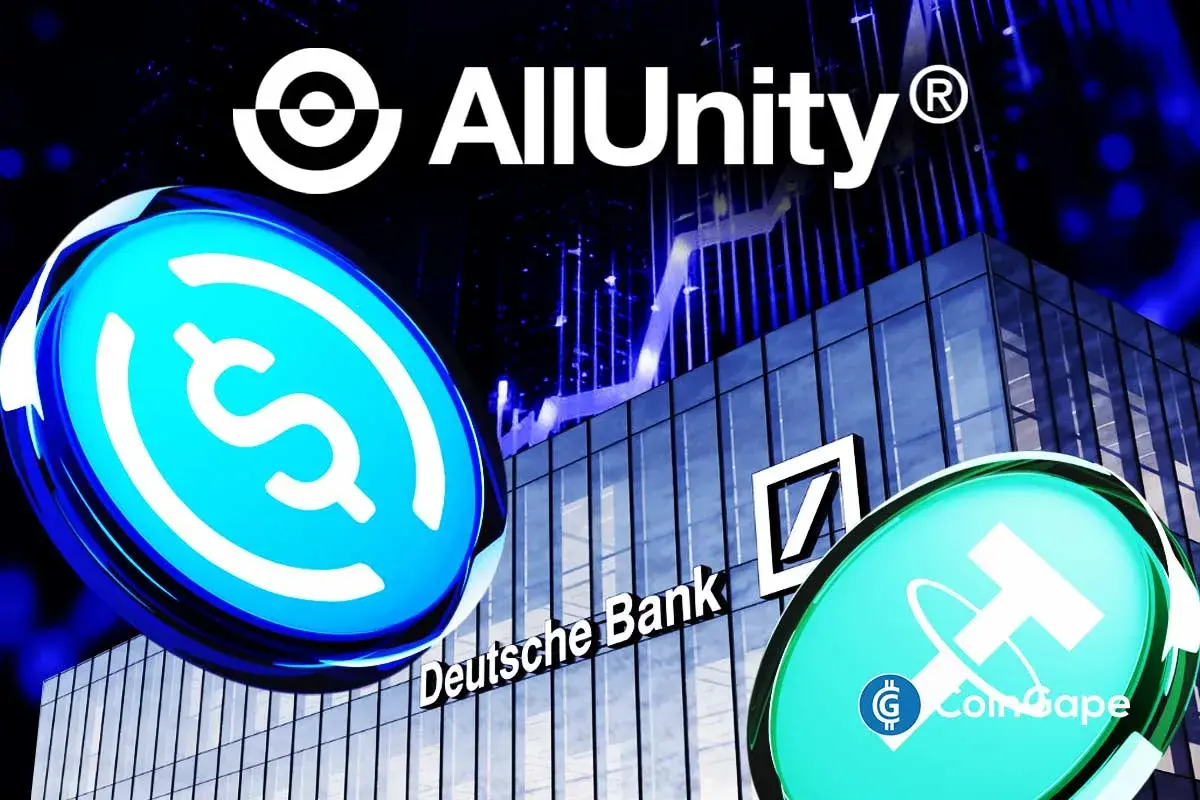Blockchain Association Calls for US SEC to Drop Equity Style Crypto Regulation

Highlights
- Blockchain Association urges SEC to ditch equity-style rules for crypto.
- Group says blockchain enables real-time settlement and disintermediation.
- SEC drops PayPal stablecoin probe as regulatory tone shifts under Atkins.
The Blockchain Association has urged the U.S. Securities and Exchange Commission (SEC) to stop applying equity market structures to the crypto industry. In a formal response to SEC Commissioner Hester Peirce’s request for input on crypto trading practices, the association argued that current approaches are not suitable for the unique features of blockchain technology.
The association’s letter, submitted on May 2, 2025, focuses primarily on topics related to trading, clearing, settlement, and custody in the digital asset space. The group represents a wide range of crypto firms, including Coinbase, Ripple, and Uniswap Labs.
Blockchain Association Request for Flexible Crypto Regulation
According to a recent thread on X, the Blockchain Association is calling on the SEC to adopt a more flexible and evolving regulatory approach for crypto assets under the new US SEC chair Paul Atkins. The existing structure was designed for the traditional equity markets, it says, and it doesn’t factor the decentralized and real time nature of blockchain based systems.
“The Association urged the Commission to refrain from adopting rules, policies, or guidance that would limit who can use blockchain technology or what the technology can be used for,” it said. They also said that blockchain facilitates innovations like real time settlement, disintermediation and lower transaction costs.
Their letter suggests modernizing best execution standards by placing emphasis on the duty of reasonable diligence and increases in transparency. They instead advocate enhanced disclosure instead of imposing strict rules ordering protection as is the case in equities.
Calls to Recognize Blockchain Transparency and Privacy Risks
The Blockchain Association also made note of blockchain’s open, verifiable data structure as a critical tool to monitoring regulatory behavior. Regulators should instead use exchange APIs and data that are publicly available and not gather sensitive personal data, they recommended.
The association, however, did note that there is still a ‘privacy risk,’ citing a June 2024 piece penned by policy executive Marisa Tashman Coppel. The group said that collecting too much personal data could increase the potential for use against users without enhancing surveillance.
In addition, the Blockchain Association further explained that the blockchain’s transparency allows regulators to track activity in real-time without interfering with user privacy. The association believes this offers a better path for regulatory compliance compared to traditional recordkeeping methods.
Past and Present US SEC Approaches Compared
In their submission, the Blockchain Association criticized past SEC leadership for attempting to fit crypto markets into equity-based models. Under former SEC Chair Gary Gensler, the agency often treated most digital assets as securities and pursued enforcement actions against several major firms.
The association claims this approach failed to account for blockchain’s distinct features.
“The previous administration tried to mold crypto market structure along the lines of a stylized view of the equity markets,” the letter said.
The group now supports the direction of the current administration. Chair Paul Atkins, who replaced Gensler, has expressed support for working with lawmakers to build a crypto-friendly framework. Since taking over, Atkins and former acting Chair Mark Uyeda have launched a new crypto task force and hosted public roundtables to gather feedback.
Industry Developments and Regulatory Shifts
As the SEC reassesses its strategy, other major crypto-related events have unfolded. This week, the agency closed its investigation into PayPal’s PYUSD stablecoin without enforcement action. The agency described its discussions with PayPal as productive.
In parallel, Ripple co-founder Chris Larsen met with SEC Chair Atkins. Although the agenda was not disclosed, analysts believe the ongoing XRP lawsuit may have been discussed. Meanwhile, the SEC and Binance have jointly requested more time in their legal proceedings, asking for a 60-day pause.
Across the Atlantic, the UK’s Financial Conduct Authority is also gathering feedback from the public and the industry. The UK regulator is exploring how to define and manage crypto-related services under national law, aiming to bring more clarity to the digital asset space.
Play 10,000+ Casino Games at BC Game with Ease
- Instant Deposits And Withdrawals
- Crypto Casino And Sports Betting
- Exclusive Bonuses And Rewards

- Vitalik Buterin Maps Out Quantum Risks as Ethereum Foundation Unveils ‘Strawmap’
- BlackRock Adds $289M in BTC as Bitcoin ETFs Log 2-Week High Inflows Of $500M
- Glassnode Signals Bitcoin Still Faces Downside Risk Amid Massive Sell Pressure at $70K
- U.S House Introduces Bipartisan Crypto Bill To Protect Crypto Developers Amid DeFi Push Under CLARITY Act
- XRP News: Ripple Unveils Funding Hub To Support Innovation On XRPL
- Top 2 Price Predictions Ethereum and Solana Ahead of March 1 Clarity Act Stablecoin Deadline
- Pi Network Price Prediction Ahead of Protocol Upgrades Deadline on March 1
- XRP Price Outlook As Jane Street Lawsuit Sparks Shift in Morning Sell-Off Trend
- Dogecoin, Cardano, and Chainlink Price Prediction As Crypto Market Rebounds
- Will Solana Price Rally to $100 If Bitcoin Reclaims $72K?
- XRP Price Eye $2 Rebound as On-Chain Data Signals Massive Whale Accumulation

 Buy $GGs
Buy $GGs
















